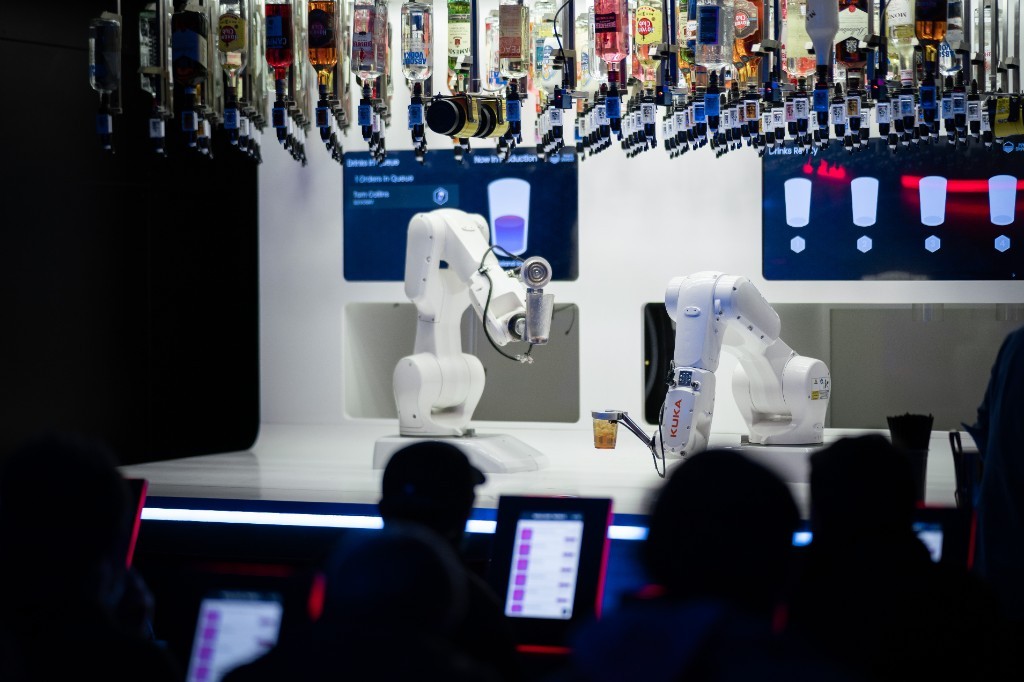In recent years, there has been a significant advancement in the field of Artificial Intelligence (AI) and Augmented Reality (AR). These technologies have become increasingly popular and have the potential to enhance virtual experiences in various fields such as gaming, education, healthcare, and...
Artificial Intelligence and Robotics: Modern Achievements and Prospects

Artificial Intelligence (AI) and robotics have become two of the most rapidly advancing fields in technology. As we move into the future, the possibilities for AI and robotics are expanding at an exponential rate. AI refers to the simulation of human intelligence in machines that are programmed to think and learn like humans. Robotics, on the other hand, focuses on the design and development of robots that can perform tasks autonomously or with minimal human intervention.
The advancements in AI and robotics have already had a profound impact on various industries. For example, AI-powered chatbots are now commonly used in customer service, helping businesses provide quick and efficient responses to customer inquiries. In manufacturing, robots are being used to automate repetitive and dangerous tasks, improving efficiency and worker safety. In healthcare, AI algorithms are being developed to assist doctors in diagnosing diseases and predicting patient outcomes.
Looking ahead, the future possibilities of AI and robotics are truly exciting. With continued advancements in machine learning and deep learning, AI systems will become even more intelligent and capable of performing complex tasks. We can expect to see robots with enhanced perception and dexterity, allowing them to interact with humans and their environment in a more natural and intuitive way. Furthermore, the integration of AI and robotics with other emerging technologies, such as virtual reality and augmented reality, will open up new possibilities for human-machine interactions.
However, as AI and robotics continue to advance, there are also concerns and ethical considerations that need to be addressed. Questions about job displacement, privacy, and the potential for AI to be used for malicious purposes are just a few of the challenges that society will face. It will be important for policymakers, researchers, and industry leaders to work together to ensure that AI and robotics are developed and used in a way that benefits humanity as a whole.
Advancements in Artificial Intelligence
Artificial Intelligence (AI) has made significant advancements in recent years, revolutionizing various industries and transforming the way we live and work. The field of AI has witnessed remarkable progress, particularly in the areas of machine learning and deep learning.
Machine Learning
Machine learning is a subset of AI that focuses on developing algorithms and models that enable computers to learn and make predictions or decisions without explicit programming. Recent advancements in machine learning have led to breakthroughs in various domains, such as natural language processing, computer vision, and autonomous vehicles.
One of the key advancements in machine learning is the development of deep learning algorithms. Deep learning models, inspired by the structure and function of the human brain, have shown exceptional performance in tasks like image and speech recognition. These models, known as neural networks, consist of multiple layers of interconnected nodes that can learn complex patterns and relationships from vast amounts of data.
Natural Language Processing
Natural Language Processing (NLP) is a branch of AI that focuses on enabling computers to understand, interpret, and generate human language. Recent advancements in NLP have led to significant improvements in language translation, sentiment analysis, and chatbot technology.
With the advent of deep learning, models like transformer networks have revolutionized machine translation. These models can generate highly accurate translations by learning patterns and relationships in large multilingual datasets. Additionally, sentiment analysis algorithms powered by NLP techniques can now accurately determine the sentiment expressed in text, enabling businesses to gauge customer satisfaction and sentiment towards their products or services.
Robotics Integration
The integration of AI and robotics has opened up new possibilities in automation and autonomous systems. AI-powered robots can now perform complex tasks with precision and efficiency, leading to advancements in industries such as manufacturing, healthcare, and agriculture.
In manufacturing, robots equipped with AI algorithms can handle intricate assembly tasks, quality control, and even collaborate with human workers. In healthcare, robotic systems can assist in surgeries, perform routine medical tasks, and provide companionship to the elderly. In agriculture, AI-powered robots can perform tasks like crop harvesting, pest control, and precision farming, improving productivity and reducing reliance on manual labor.
In conclusion, advancements in artificial intelligence have revolutionized various domains, offering tremendous potential for the future. Machine learning and deep learning techniques have enabled computers to learn and make predictions without explicit programming, while natural language processing has improved language understanding and generation. The integration of AI and robotics has also led to significant advancements in automation and autonomous systems. As AI continues to evolve, the possibilities for its applications are limitless.




